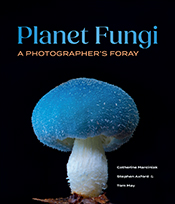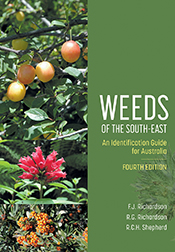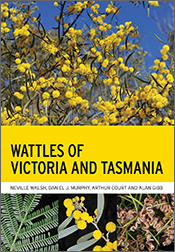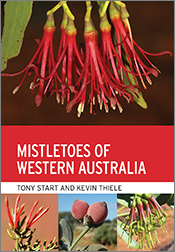Generic Concepts and Modern Taxonomy
(Partial proceedings of the ASBS 150 Conference and invited papers)
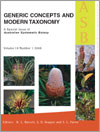
Australian Systematic Botany
Special Issue Volume 18 Number 1
Few issues have caused the same degree of tension among botanical taxonomists as debate on generic concepts. While changes to family circumscriptions and differing species concepts will continue to abound, the genus concept is likely to remain the most contentious. In some ways, the generic concept is the most important in our classification, as it provides a ready label for what are usually the most readily recognisable groups of plants. Proponents of the Phylocode downplay this importance with a proposed rankless classification (Cantino and de Querioz 2000).
Some 20 years on from the Boden Conference on large genera in Thredbo (Hopper 1985), a mini-symposium on large genera and generic concepts opened the proceedings of the 150 Conference, celebrating 150 years of the National Herbarium, Victoria, in September 2003. The 150 Conference celebrated the rich history of systematic botany in Australia and the important role of the National Herbarium of Victoria, past and present. The conference was co-organised by the Royal Botanic Gardens Melbourne, the School of Botany, The University of Melbourne, the Australian Systematic Botany Society and the Australasian Mycological Society.
This Special Issue was formed from a combination of papers presented at the conference and invited papers. The various authors take different approaches to resolving the issues faced in stabilising the classification of the groups concerned.
This Special Issue will stimulate a greater consideration of proposed changes by botanists, outside their own groups of specialisation, for the purpose of reaching a broad consensus that will well serve the botanically-minded public and professionals alike. At stake is the credibility of taxonomy as a science that serves the needs of its users. As Peter Stevens remarked in his opening address, “… if we keep on lumping and splitting, we deserve everything we have coming to us”.
View Table of Contents
Visit the Australian Systematic Botany home page.
View other special issues of Australian Systematic Botany.

